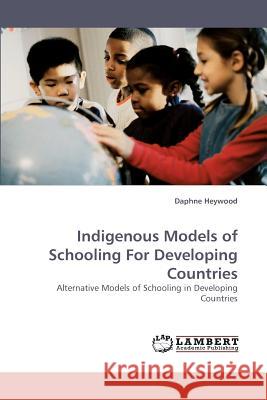Indigenous Models of Schooling For Developing Countries » książka
Indigenous Models of Schooling For Developing Countries
ISBN-13: 9783838336442 / Angielski / Miękka / 2010 / 280 str.
Educational systems of developing countries ought to be evaluated using appropriate analytical and methodological criteria, determined within a local context. This study attempts to challenge the dominant paradigm that links education to "Western" ideas of development. In doing so it analyzes the relationship between endogenous development and indigenous models of schooling. It attempts a comparative case-study analysis of two indigenous models of schooling in former colonies: Fe y Alegria of Venezuela and Servol of Trinidad and Tobago. These models are studied because they reflect local, cultural, social, and economic conditions. Attention is paid to community involvement, indigenous ideas about curriculum and programming, the link between education and work, and the link between local epistemologies and education outcomes. The study involves qualitative methods of analysis with particular emphasis on ethnographic methods. Documentary analysis is used to complement field research and participatory observation.
Educational systems of developing countries ought to be evaluated using appropriate analytical and methodological criteria, determined within a local context. This study attempts to challenge the dominant paradigm that links education to "Western" ideas of development. In doing so it analyzes the relationship between endogenous development and indigenous models of schooling. It attempts a comparative case-study analysis of two indigenous models of schooling in former colonies: Fe y Alegría of Venezuela and Servol of Trinidad and Tobago. These models are studied because they reflect local, cultural, social, and economic conditions. Attention is paid to community involvement, indigenous ideas about curriculum and programming, the link between education and work, and the link between local epistemologies and education outcomes. The study involves qualitative methods of analysis with particular emphasis on ethnographic methods. Documentary analysis is used to complement field research and participatory observation.











